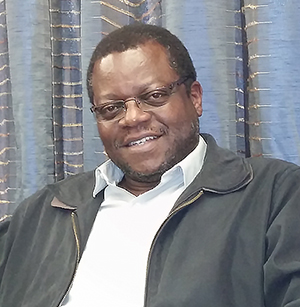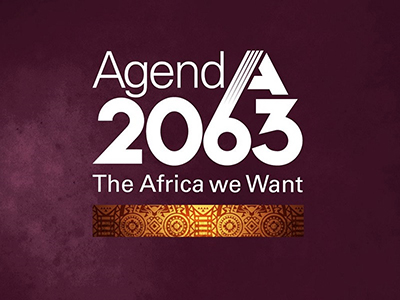
The largest provider of business education in Africa and one of the largest in the world

Prof Raphael Tabani Mpofu (Deputy Executive Dean: College of Economic and Management Sciences) is now a member of the Unisa 2019 Half Million Rand Club for funding he received from the AU for various projects aligned to Agenda 2063.
Unisa is dominated by leaders who believe in leading by example and Prof Raphael Tabani Mpofu is one of those who keep flying the flag high. The Deputy Executive Dean of Unisa’s College of Economic and Management Sciences (CEMS) joined the exclusive 2019 Half Million Rand Club Award at the 2020 Research & Innovation Awards for funding he received from the African Union (AU) for various research projects aligned to Agenda 2063.
Passionate about research and discovery, Mpofu describes himself as a Pan-Africanist and, throughout his academic career, his interests have always been to unite researchers and scholars across the continent and diaspora. That is what motivated him to start a research project back in 2016 that supports Agenda 2063: The Africa we want.
Having studied for a Bachelor of Business Studies at the University of Zimbabwe and an MBA at the University of Toronto, he holds a PhD from the University of Bradford, England. His PhD thesis is titled The impact of trade policy on the competitiveness of firms in the clothing industry in Zimbabwe. After lecturing at the University of Zimbabwe, he then joined Unisa as a lecturer and has since been promoted to a number of leadership positions.
Mpofu’s current research interests are in the field of entrepreneurship. He is pursuing two projects, namely, Millennials: The future of entrepreneurship in Africa, and Rural and urban entrepreneurial development. The first project explores entrepreneurship among millennials via multiple avenues, with the goal to provide insights on both viewpoints surrounding millennial entrepreneurship to set the stage for qualitative analyses of entrepreneurship among millennial women. Among others, the objectives include entrepreneurship motivations for millennials and profiling of millennial entrepreneurs in terms of gender and age.
The second study looks at reasons behind entrepreneurial initiatives, the sources of the business idea, critical factors of success and challenges faced by rural entrepreneurs. According to Mpofu, there is a greater realisation in economic development spaces that entrepreneurship is a critical vehicle that can transform rural communities and bolster economic growth and development of these communities. He, therefore, tries to understand the emergence of entrepreneurship in a rural economy.
Expressing his appreciation for joining the Half Million Rand Club, he says the award is for the team of researchers with whom he works. "They are part of the bigger African family with an interest in how the African continent can solve its problems. Policies should be guided by scientific findings and cannot happen without committed researchers and organisations that are prepared to finance the research activities."
With regard to the various research projects aligned to Agenda 2063, he explains that the AU adopted a new framework for Africa’s Development with seven aspirations that emanate from extensive consultations from stakeholders, cutting across all spheres of the African people. These aspirations reflect the African people’s desire for shared prosperity and well-being, for unity and integration, for a continent of free citizens and expanded horizons, where the full potential of women and youth, boys and girls are realised, and with freedom from fear, disease and want. The motto for Agenda 2063 is The Africa we want. Their project has been refined to focus on the Blue Economy and on Women and Youth Employment, with research focus areas that include tourism, economics and governance.
Mpofu urges researchers to be passionate about their research of choice as that is what will drive the research and make it meaningful. "The interaction of the researcher with the subject matter and research participants will lead to a better understanding of the research space and lead to a thorough analysis and interpretation of the results. However, the researcher needs to remain objective and be constantly on the lookout for bias in data collection and interpretation. Objectivity is critical in research, hence researchers should always remain precise, unbiased, open, honest, and receptive to criticism. If the process is properly executed, the research findings will be valid and reliable and will be treated as a scientific study."
In conclusion, Mpofu says that CEMS is exploring research with EU partners under the EU Erasmus+ Programme. Their research unit is currently developing a Master’s in Sustainable Development involving CEMS, the Graduate School of Business Leadership (SBL) and the College of Agriculture and Environmental Sciences (CAES). The University of Seychelles has already expressed an interest in offering this joint degree with Unisa.
* By Nancy Legodi, Acting Journalist, Department of Institutional Advancement

Publish date: 2020-04-21 00:00:00.0